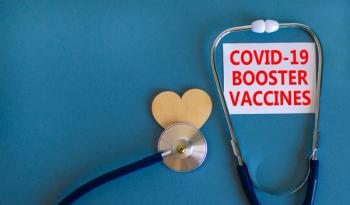
When to Go to the ER for COVID Concerns
Emergency physicians clarify whether to manage COVID at home or seek emergency care.
A large number of emergency departments across the United States are at capacity due to high COVID-19 case counts, staffing challenges and increasing demand for testing. The Omicron variant is extremely contagious and has been the latest form of the virus affecting most, which makes it important to know when to go to the emergency department for COVID concerns, according to a release from the American College of Emergency Physicians (ACEP).
"Emergency departments in many communities are stretching to their limits," said Gillian Schmitz, MD, FACEP, president of ACEP, in the release. "You can be sure that an emergency physician is ready to care for anyone who needs immediate medical attention. Whether it's COVID-related or not, do not ignore the signs of an emergency. But, for those seeking routine COVID tests, it may be more efficient to visit a testing site or take a test at home."
Emergency physicians continue to voice concerns about
According to a report in the
Hospitals are leaving beds empty because the facilities don’t have enough staff members to safely care for the patients, and
One way to ease the strain on health systems is to recognize when to treat a potential case of COVID-19 at home, and when to seek emergency care, the release said.
"Fortunately for those who are vaccinated, many of the symptoms that distinguish the Omicron variant appear to be mild and can be monitored and managed at home," said Dr. Schmitz.
It's recommended to get tested and contact a primary care physician to discuss treatment options if you think you have COVID-19 or may have been in close contact with somebody who has the virus. Emergency physicians report that common symptoms associated with the Omicron variant include head or body aches and similarities with the common cold but may not include loss of sense of taste or smell. Symptoms consistent with COVID-19, regardless of variant, include:
- Fever
- Coughing
- Shortness of breath or difficulty breathing
- Fatigue
- Muscle or body aches
- New loss of taste or smell
- Sore throat
- Congestion or runny nose
- Nausea or vomiting
- Diarrhea
Importantly, it's recommended to get tested with an at-home test or at a testing site before seeking assistance at the ER if the symptoms are moderate or mild. To manage mild or moderate symptoms at home, it's similar to the way a cold or flu is treated, with over-the-counter medication as directed by a primary care physician. If positive for COVID, follow the Centers for Disease Control (CDC) guidelines for isolation or quarantine.
Call 911 or go to the emergency department for severe illness, difficulty breathing, intense chest pain, extreme weakness, or disorientation, especially for those at high risk of COVID complications, which includes anyone older or with a weakened immune system.
According to the release, emergency physicians remind everyone that it is still important to observe local safety guidelines, wear a mask in crowded indoor spaces, social distance, regularly wash hands, and stay home if you are sick. It is recommended that everyone eligible get the vaccine and a booster shot. Anyone who has COVID can spread it, even if symptoms are mild.
"The choices we make to stay safe and protect each other can save lives," said Dr. Schmitz. "Everyone can do their part to slow the spread of the virus and help make sure that emergency departments remain accessible for those who are severely ill with COVID or other emergencies," said Dr. Schmitz.
Newsletter
Get the latest industry news, event updates, and more from Managed healthcare Executive.























